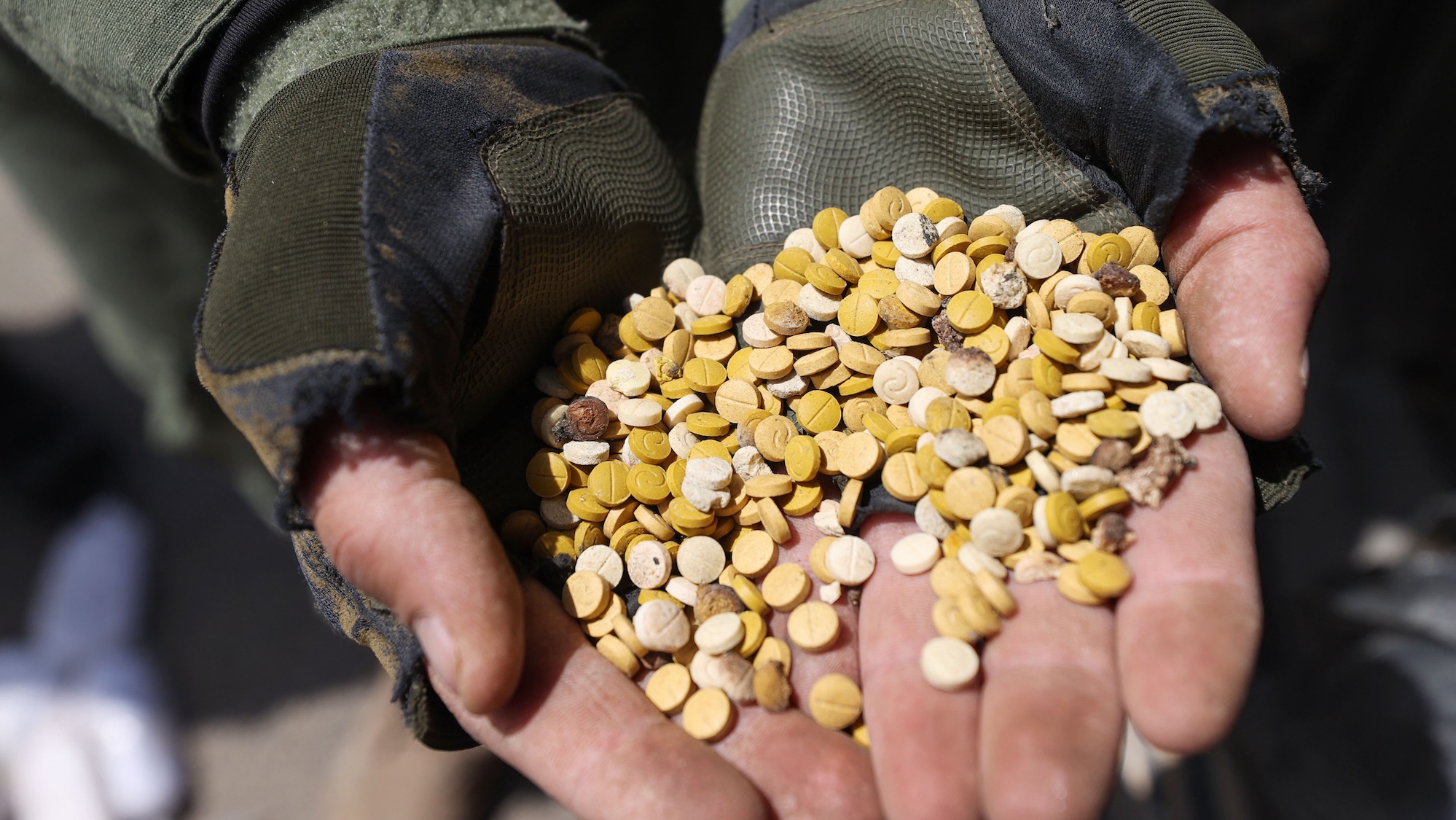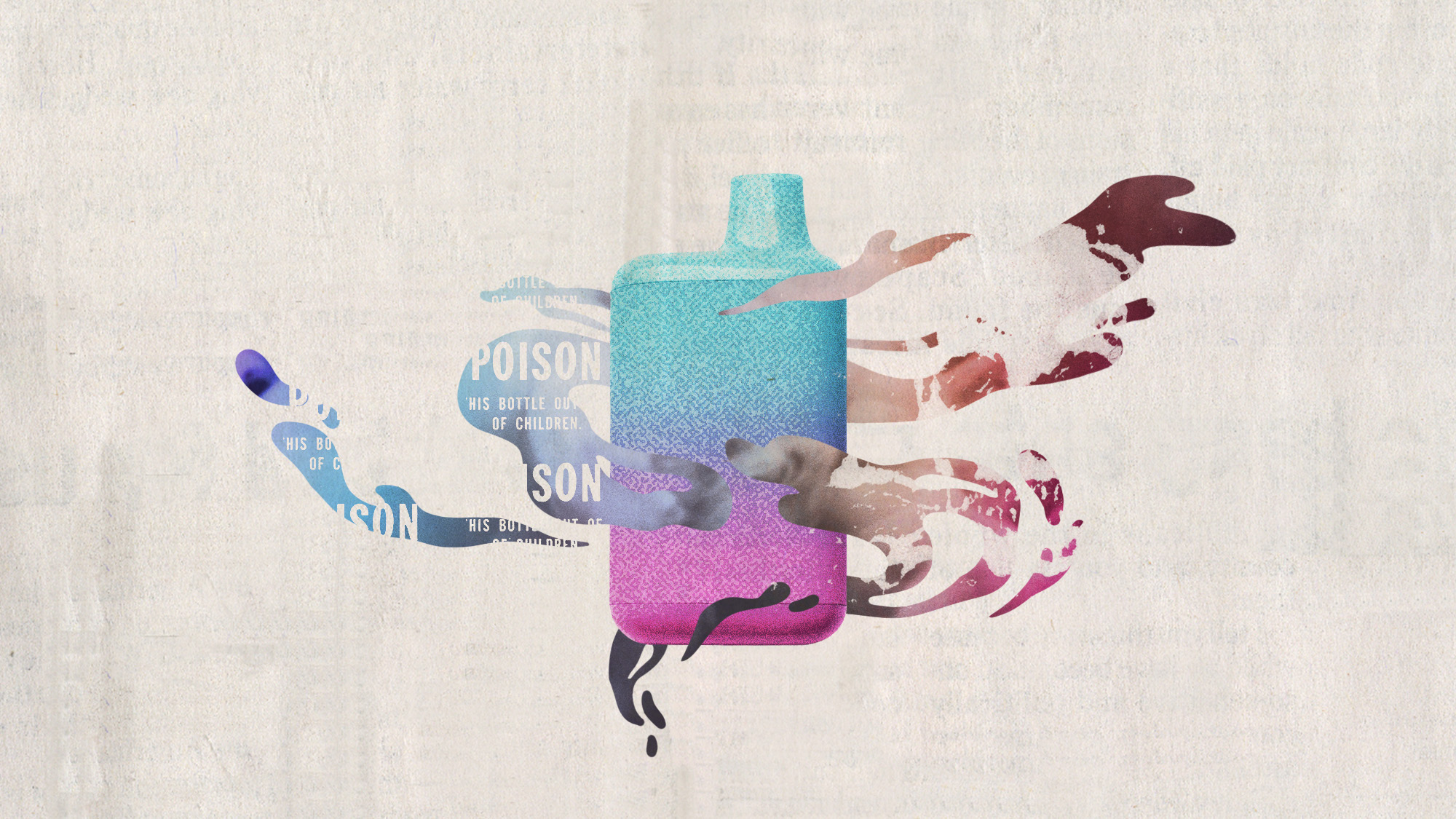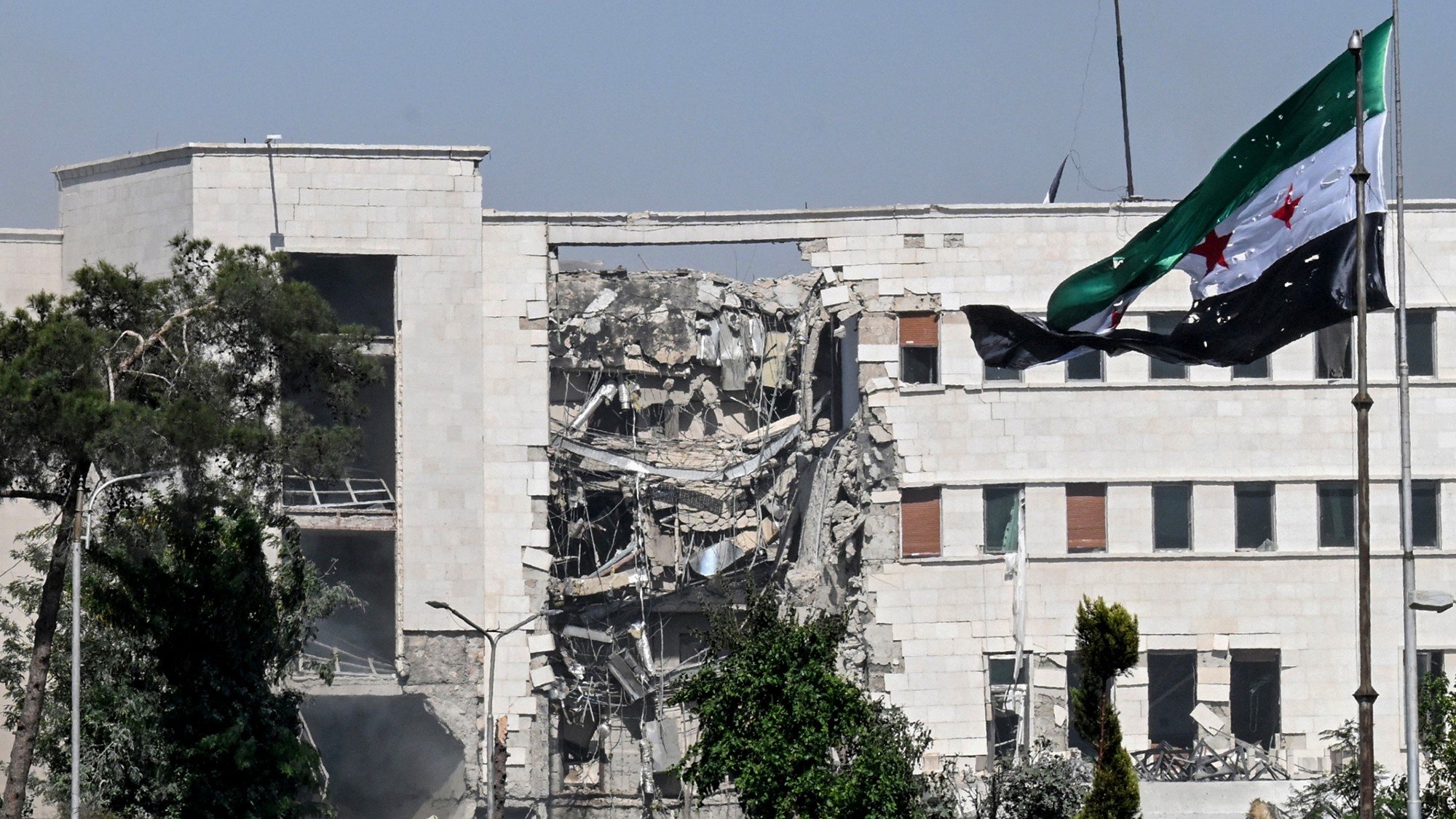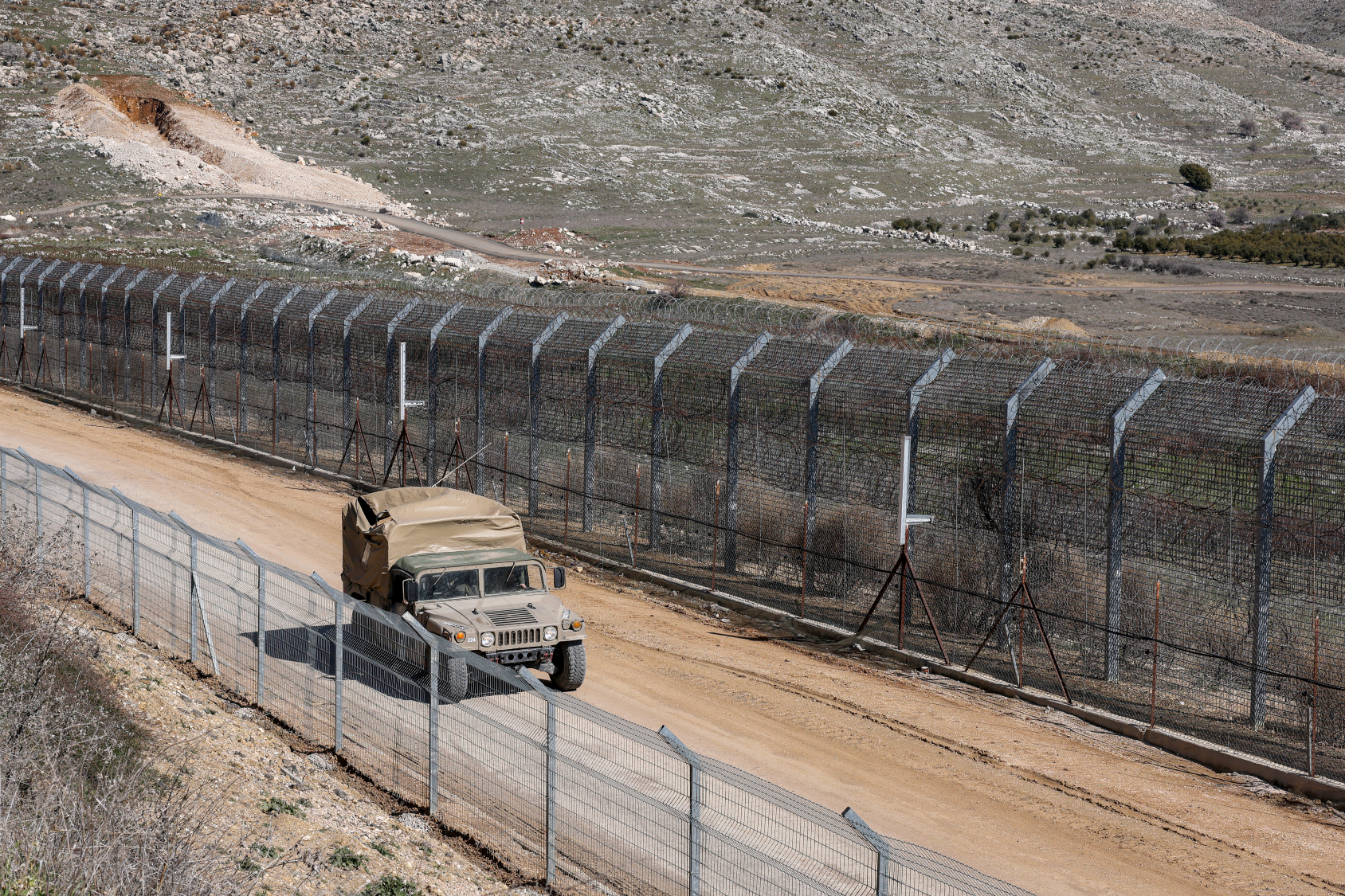Assad's fall upends the Captagon drug empire
Multi-billion-dollar drug network sustained former Syrian regime

A free daily email with the biggest news stories of the day – and the best features from TheWeek.com
You are now subscribed
Your newsletter sign-up was successful
As they pushed towards victory in early December, rebel forces in Syria uncovered the true extent of the Assad regime's worst-kept secret: its involvement in the production and trade of the powerful – and illegal – stimulant, Captagon.
Inside a so-called "soap factory" on the outskirts of Damascus, rebel fighters found "millions of Captagon pills and industrial quantities of precursor chemicals", said The Guardian – evidence of what was long alleged to be the "world’s largest Captagon production and export operation".
The Hayat Tahrir al-Sham group leading the offensive to unseat Assad were "more than happy to show journalists" the extent of the production of the "speed-like" substance, said Sky News. But it's not at all clear what will happen now to this narco-empire, which had become the "most valuable sector of Syria's war-shattered economy".
The Week
Escape your echo chamber. Get the facts behind the news, plus analysis from multiple perspectives.

Sign up for The Week's Free Newsletters
From our morning news briefing to a weekly Good News Newsletter, get the best of The Week delivered directly to your inbox.
From our morning news briefing to a weekly Good News Newsletter, get the best of The Week delivered directly to your inbox.
What is Captagon?
Captagon is an amphetamine-type stimulant that was first produced in the 1960s to treat conditions such as narcolepsy and ADHD. Its chemical name is fenethylline, but it is generally known by the brand name under which it was first marketed.
The drug "leaves users feeling confident and alert, along with a sensation of euphoria", but side effects include "anxiety and depression", said Al Jazeera. It was banned in much of the world in the mid-1980s, due to concerns about these adverse side effects and its addictive potential.
By then, though, Captagon had "picked up a following" in the Middle East as a recreational drug and, by the early 2000s, the region had become the centre of Captagon production and distribution. Often referred to as "chemical courage", it has reportedly been "used by soldiers in war-torn areas" to give them "focus and energy", said drugs researcher Nicole Lee on The Conversation.
But the illicit labs of the Middle East are not "fastidious" about the quality of production, said The New Yorker. Almost "no pills sold as Captagon today contain fenethylline", and the name has come to mean "any pill" that has an "amphetamine-type boost".
A free daily email with the biggest news stories of the day – and the best features from TheWeek.com
How big was Assad's Captagon operation?
The Assad regime "denied until its last day" that it was behind the illicit Captagon operation, said The Guardian, despite being accused by "neighbouring states" of funnelling vast amounts of the drug across its borders to Jordan and the Gulf States. But Assad's brother, Maher, headed a military unit that, in 2018, is known to have helped seize the "soap factory" the Syrian rebels recently discovered, said the paper.
Syria's government had been offered "huge sums as an incentive to crack down on the smuggling operation" by its neighbours, and US, EU and UK sanctions targeted those suspected of involvement in trafficking the drug. But it's "an open question" whether these efforts helped "to curtail the Captagon trade" or not, said The New Yorker.
A recent report by the Observatory of Political and Economic Networks suggested that, between 2020 and 2022, profits from the Captagon trade "for actors in Syria and Lebanon" was worth $2.4 billion (£1.9 billion) a year. Pills produced and distributed by "drug lords" across Syria would be sold for "anything from $2 to $20 each", said Sky News.
What will happen to Captagon market now?
Assad may be gone but it is unlikely that the Captagon market will disappear with him. There is still plenty of "appetite" for the drug, and the trade will now "shift" to other regions, said Al Jazeera. In what's called the "balloon effect", any clampdown on known areas of production will simply cause the creation and supply of Captagon to move to "new transit and production sites" at lower risk of detection.
While the upended Syrian Captagon network may not quell the Middle East's desire for drugs, it will have knock-on effects for those profiting from it. Hezbollah, for instance, already "under severe financial pressure" after its war with Israel, will feel a "strain" on its resources, after years of helping facilitate the trafficking of the drug for the Assad regime, said The Wall Street Journal.
Of course, there are still other drugs in plentiful supply, including methamphetamine – "a great deal of which reportedly already comes from Iran and Afghanistan", said Al Jazeera. Operators in both of these countries could well pick up on the stalled Captagon trade, too.
Richard Windsor is a freelance writer for The Week Digital. He began his journalism career writing about politics and sport while studying at the University of Southampton. He then worked across various football publications before specialising in cycling for almost nine years, covering major races including the Tour de France and interviewing some of the sport’s top riders. He led Cycling Weekly’s digital platforms as editor for seven of those years, helping to transform the publication into the UK’s largest cycling website. He now works as a freelance writer, editor and consultant.
-
 The Olympic timekeepers keeping the Games on track
The Olympic timekeepers keeping the Games on trackUnder the Radar Swiss watchmaking giant Omega has been at the finish line of every Olympic Games for nearly 100 years
-
 Will increasing tensions with Iran boil over into war?
Will increasing tensions with Iran boil over into war?Today’s Big Question President Donald Trump has recently been threatening the country
-
 Corruption: The spy sheikh and the president
Corruption: The spy sheikh and the presidentFeature Trump is at the center of another scandal
-
 Mexico’s vape ban has led to a cartel-controlled black market
Mexico’s vape ban has led to a cartel-controlled black marketUnder the Radar Cartels have expanded their power over the sale of illicit tobacco
-
 Syria’s Kurds: abandoned by their US ally
Syria’s Kurds: abandoned by their US allyTalking Point Ahmed al-Sharaa’s lightning offensive against Syrian Kurdistan belies his promise to respect the country’s ethnic minorities
-
 Syria’s Islamic State problem
Syria’s Islamic State problemIn The Spotlight Fragile security in prison camps leads to escape of IS fighters
-
 Inside Syria’s al-Hol camp
Inside Syria’s al-Hol campUnder the radar Aid cuts mean authorities face ‘uphill struggle’ to maintain security
-
 Jasveen Sangha and the ketamine 'Wild West' of Hollywood
Jasveen Sangha and the ketamine 'Wild West' of HollywoodIn The Spotlight Arrest of the 'ketamine queen' accused of supplying Friends star Matthew Perry with deadly dose has turned spotlight on a showbiz drug problem
-
 Rubio says US brokered end to Syria conflict
Rubio says US brokered end to Syria conflictSpeed Read Syria's defense ministry was targeted in Israeli attacks on the capital
-
 Syria's returning refugees
Syria's returning refugeesThe Explainer Thousands of Syrian refugees are going back to their homeland but conditions there remain extremely challenging
-
 Inside the Israel-Turkey geopolitical dance across Syria
Inside the Israel-Turkey geopolitical dance across SyriaTHE EXPLAINER As Syria struggles in the wake of the Assad regime's collapse, its neighbors are carefully coordinating to avoid potential military confrontations